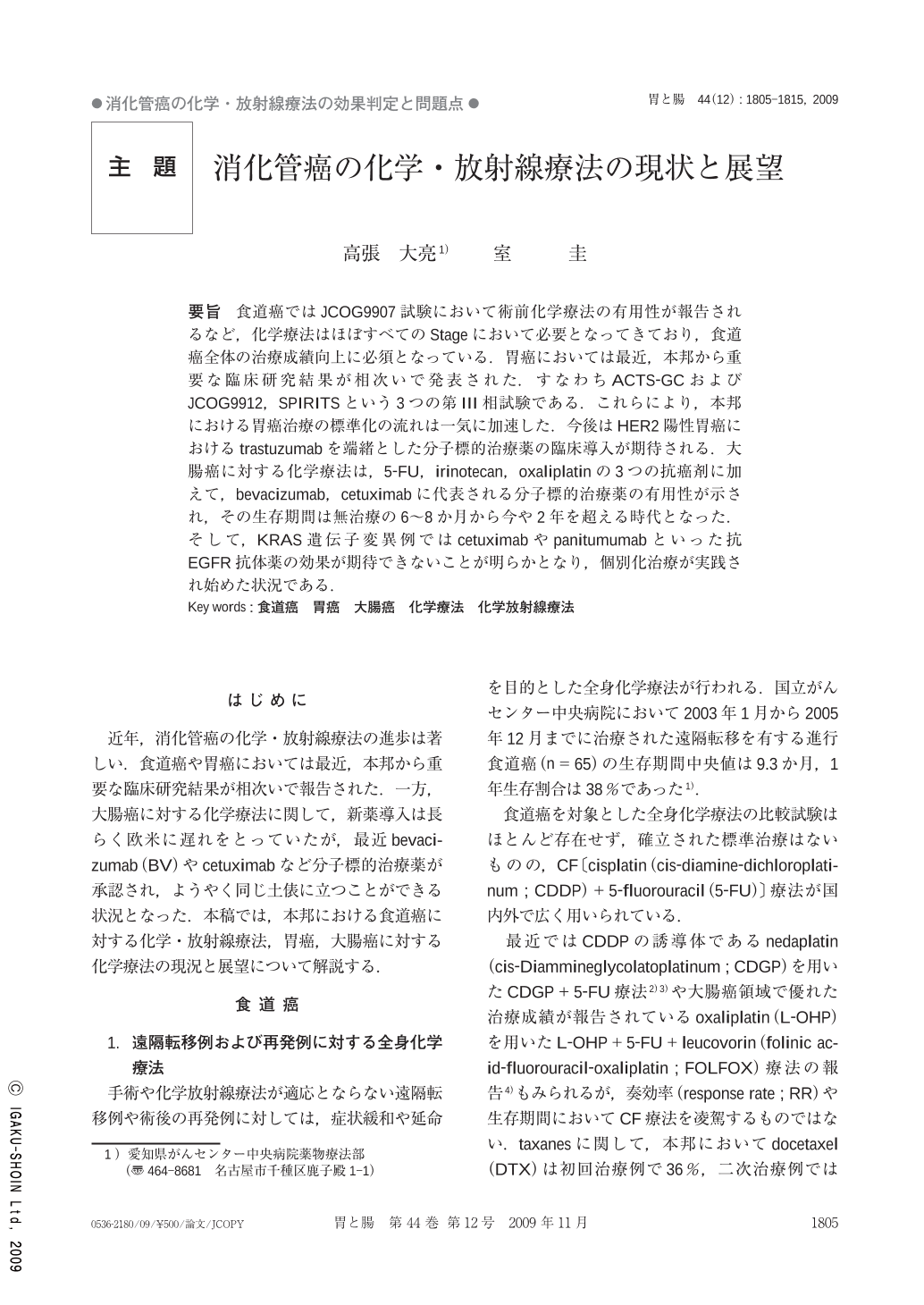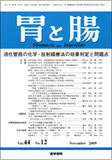Japanese
English
- 有料閲覧
- Abstract 文献概要
- 1ページ目 Look Inside
- 参考文献 Reference
要旨 食道癌ではJCOG9907試験において術前化学療法の有用性が報告されるなど,化学療法はほぼすべてのStageにおいて必要となってきており,食道癌全体の治療成績向上に必須となっている.胃癌においては最近,本邦から重要な臨床研究結果が相次いで発表された.すなわちACTS-GCおよびJCOG9912,SPIRITSという3つの第III相試験である.これらにより,本邦における胃癌治療の標準化の流れは一気に加速した.今後はHER2陽性胃癌におけるtrastuzumabを端緒とした分子標的治療薬の臨床導入が期待される.大腸癌に対する化学療法は,5-FU,irinotecan,oxaliplatinの3つの抗癌剤に加えて,bevacizumab,cetuximabに代表される分子標的治療薬の有用性が示され,その生存期間は無治療の6~8か月から今や2年を超える時代となった.そして,KRAS遺伝子変異例ではcetuximabやpanitumumabといった抗EGFR抗体薬の効果が期待できないことが明らかとなり,個別化治療が実践され始めた状況である.
For esophageal cancer, chemotherapy must be used in all stages to improve clinical outcomes. With that general principle, survival after chemoradiotherapy is comparable to survival after surgery alone for stage I cancer. Preoperative chemotherapy is considered the new standard of care for stages II and III ; and systemic chemotherapy and chemoradiotherapy are commonly used for metastatic and locally advanced disease, respectively. For gastric cancer, outcomes of three important Japanese phase III studies, ACTS-GC, JCOG9912, and SPIRITS, have been recently reported. The results immediately set a new standard for gastric cancer in Japan. There is also hope that like trastuzumab, novel molecular targeting agents will be used in the near future. For colorectal cancer, the introduction of irinotecan and oxaliplatin therapy followed by molecular targeting agents such as bevacizumab and cetuximab, has improved overall survival to over 2 years from 6~8 months using the best supportive care. However, patients with KRAS mutations appear not to benefit from anti-EGFR antibody therapy with cetuximab or panitumumab. We have just started to practice “personalized” chemotherapy.

Copyright © 2009, Igaku-Shoin Ltd. All rights reserved.


